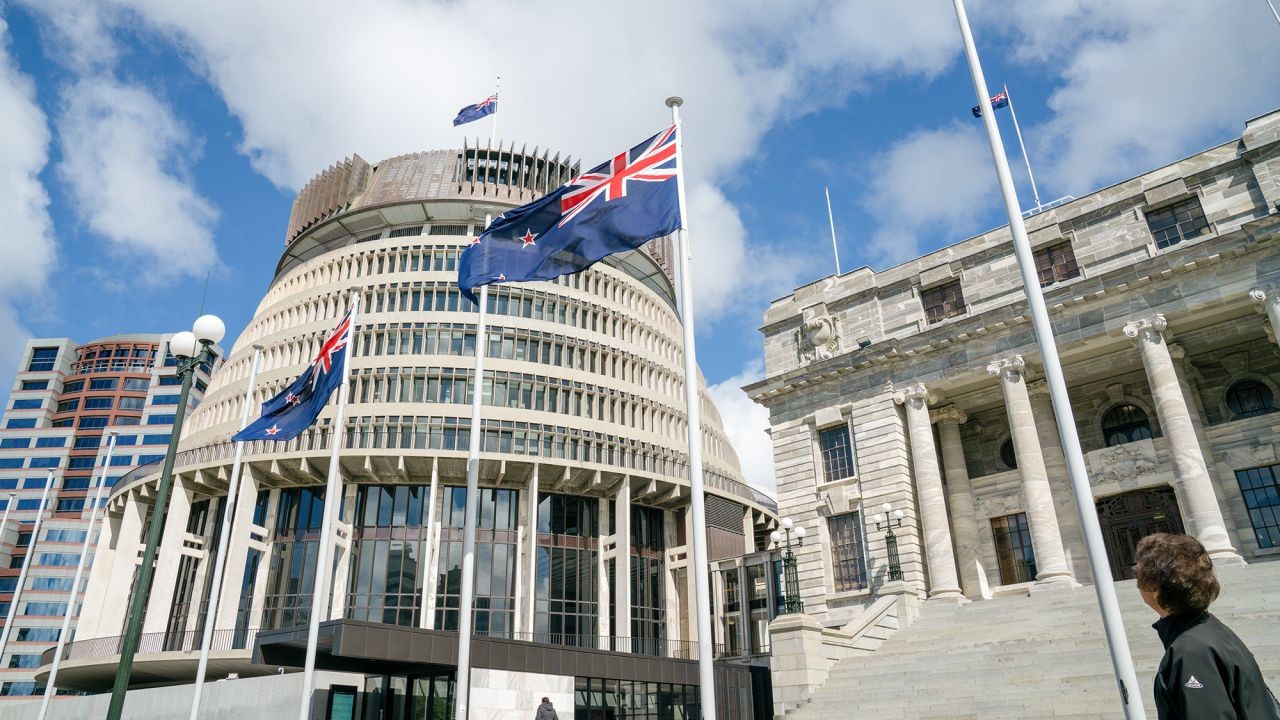In the coming years, New Zealand is set to witness significant political shifts that will shape its economic, social, and environmental landscapes. By 2035, the nation will likely face critical issues demanding strategic foresight and decisive action. As a financial advisor, understanding these issues is crucial for navigating the complex market dynamics and advising clients effectively. Let's delve into the key political issues anticipated to dominate New Zealand's future and explore how they might impact the country's economy and industries.
Climate Change and Environmental Policies
Climate change is expected to be one of the most pressing political issues in New Zealand by 2035. The country's commitment to achieving carbon neutrality by 2050 has already set the stage for significant policy changes. The Ministry for the Environment reports that New Zealand’s carbon emissions decreased by 4% in 2024, showcasing a positive trend but also highlighting the challenges ahead. Industries reliant on fossil fuels will need to adapt rapidly, presenting both risks and opportunities for investors.
For instance, the energy sector may see increased investments in renewable energy projects. Financial advisors should consider advising clients on opportunities in green technologies and sustainable infrastructure. However, transitioning to a low-carbon economy may also lead to increased regulatory costs for businesses, impacting their bottom lines.
Housing Affordability and Urban Development
By 2035, housing affordability is expected to remain a contentious political issue in New Zealand. The country has experienced a 27% rise in property prices (Stats NZ, 2024), exacerbating affordability concerns. This trend is likely to continue unless substantial policy interventions are enacted. Urban development strategies will need to balance population growth with sustainable land use, impacting real estate markets and construction industries.
For financial advisors, this translates into a need for strategic investment advice focusing on emerging urban centers and innovative housing solutions. Clients may benefit from diversifying their portfolios to include real estate investment trusts (REITs) that focus on sustainable urban development projects.
Technological Advancements and Workforce Transformation
The rapid advancement of technology is poised to reshape New Zealand's workforce by 2035. Automation and artificial intelligence will likely replace certain jobs, while creating new opportunities in tech-driven industries. According to a report by NZTech, 80% of industries are shifting towards AI-assisted roles, not full replacement, indicating a need for workforce reskilling and upskilling.
Financial advisors should prepare clients for these changes by emphasizing the importance of continuous learning and investing in education and training sectors. Additionally, tech-savvy businesses are expected to gain a competitive edge, making them attractive investment options.
Case Study: Xero’s Digital Transformation
Problem: Xero, a New Zealand-based accounting software provider, faced challenges in scaling its operations globally while maintaining product quality.
Action: To address this, Xero implemented AI-driven analytics and cloud-based solutions, enhancing its service offerings and customer experience.
Result: Within two years, Xero reported a 50% increase in customer retention and a 30% boost in global market share.
Takeaway: This case highlights the importance of embracing digital transformation to sustain growth. New Zealand businesses can leverage similar strategies to enhance operational efficiency and global competitiveness.
Pros and Cons of Political Issues in New Zealand by 2035
Pros:
- Increased Investment Opportunities: Green technologies and urban development offer new avenues for investment.
- Technological Advancements: Innovation in AI and automation can enhance productivity and create new industries.
- Global Competitiveness: Embracing sustainability and technology can position New Zealand as a leader in the global market.
Cons:
- Regulatory Challenges: Compliance with new environmental and housing policies may increase operational costs.
- Workforce Displacement: Automation may lead to job losses in certain sectors, necessitating reskilling efforts.
- Market Volatility: Rapid technological changes can lead to market unpredictability.
Debunking Myths About New Zealand’s Political Future
Myth: "Automation will eliminate all jobs."
Reality: While automation will change job roles, it will also create new opportunities, especially in tech-driven sectors. NZTech predicts a shift towards AI-assisted roles rather than full replacement.
Myth: "Housing prices will always rise."
Reality: Market dynamics, policy interventions, and economic factors can influence price trends, making it essential to stay informed about market conditions.
Future of New Zealand's Political Landscape
By 2035, New Zealand's political landscape will be shaped by a commitment to sustainability, technological innovation, and inclusive growth. According to a Deloitte report, by 2028, 40% of NZ banks will adopt blockchain-based cross-border payments, showcasing a shift towards digital transformation. Financial advisors should prepare to navigate these changes by staying informed about policy developments and advising clients on strategic investments in emerging sectors.
Conclusion
As New Zealand approaches 2035, understanding the key political issues will be crucial for financial advisors aiming to provide strategic guidance. From climate change policies to technological advancements, these issues will influence investment opportunities and market dynamics. To stay ahead, advisors must embrace a proactive approach, staying informed about policy changes and emerging trends. What’s your take on New Zealand’s political future? Share your insights below!
Related Search Queries
- Future political issues in New Zealand
- New Zealand climate change policies 2035
- Impact of technology on New Zealand workforce
- New Zealand housing market trends 2035
- Investment opportunities in New Zealand 2035
People Also Ask (FAQ)
How will climate change impact New Zealand's economy by 2035?
Climate change policies will drive investment in renewable energies and sustainable practices, potentially boosting green technology sectors while increasing operational costs for non-compliant industries.
What are the biggest misconceptions about New Zealand's political future?
A common myth is that automation will eliminate all jobs. However, NZTech predicts a shift towards AI-assisted roles, creating new opportunities rather than full job replacement.
What strategies should investors consider for New Zealand's future political landscape?
Investors should focus on green technologies, urban development projects, and companies embracing digital transformation to align with future policy and market trends.

































delilavelasco
8 months ago